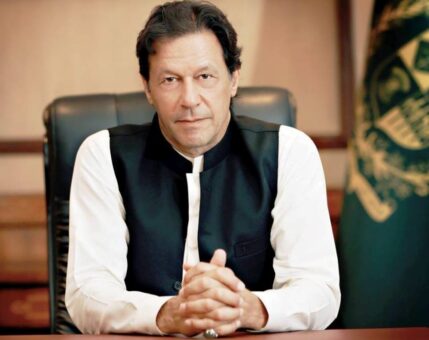ISLAMABAD: The customs authorities along with other law enforcement agencies have sealed around 192 illegal fuel stations selling smuggled petroleum products, the federal cabinet was informed on Tuesday.
Prime Minister Imran Khan chaired the meeting of federal cabinet. The cabinet was briefed about the steps being taken to control smuggling of petroleum products in the country.
The cabinet was informed that illegal smuggling of oil causes Rs 180 billion losses to the exchequer and causes environmental pollution besides damaging engines of the vehicles.
The cabinet was informed that crackdown has been started and so far 192 pumps have been sealed.
The meeting discussed various agenda items relating to development projects and other issues of importance, a statement issued by the PM office said.
The Federal Cabinet on approved amendments in the relevant laws to enhance powers of the Auditor General of Pakistan (AGP) to ensure transparency.
Briefing the media about the decisions of the federal cabinet meeting chaired by Prime Minister Imran Khan here, Federal Minister for Information and Broadcasting Senator Shibli Faraz said that after the amendment the purview of the AGP would also be extended to autonomous bodies which so far get their accounts audited from private firms.
He said that some of the audit paragraphs are about procedural issues which when reported create unnecessary sensation. He said that the functioning of AGPR would be digitalized and automated and issuance ofcheques would be done through automation and human involvement would be reduced to increase transparency.
The PTI government was vigorously working on institutional reforms as it had promised in its manifesto and the cabinet decided to share their details with the public soon, he said.
The minister said most of the institutions were following old and obsolete methods which compromise efficiency, transparency and accountability.
Shibli said that PM’s Adviser on Institutional Reforms Dr Ishrat Hussain informed the meeting that over 100 institutions of the federal government were either merged or abolished to reduce the burden on the exchequer.
He said that the cabinet was informed that about 71000 posts from grade 1 to 16 which remained vacant for over one year would be abolished.
He said that after passage of 18th Amendment many ministries were devolved but the number of federal government employees have increased.
Shibli Faraz said the cabinet has formed an inter-ministerial committee, which will reveal the details of the individuals, mentioned in the Broadsheet scandal. He said former Prime Minister Nawaz Sharif and others influenced that inquiry to save their own skin and now the government under Prime Minister Imran Khan has decided to make those names public, after thorough scrutiny of the available material.
Shibli Faraz said that the Prime Minister Imran Khan expressed his strong displeasure and annoyance over opening of fire by the police on a youth Osama Satti.
Minister for Planning Asad Umar raised the incident of the death of Osama Satti in police firing.
He said that the Joint Investigation Committee formed to investigate killing of Osama Satti has presented its report to the interior secretary, but the Prime Minister expressed the resolve that new probe would be arranged if family members of the deceased youth are not satisfied with JIT’s findings.
He said an inquiry will be organized to the satisfaction of Osama Satti’s family to take the culprits to the task.
He said that the cabinet discussed the legal steps so that in future no province could create shortage of edible commodities by not releasing its share as Sindh government did, which resulted in wheat crisis.
Shibli Faraz said the cabinet also approved the proposal to give the status of police station to FIA Commercial Bank Circle.
Now the jurisdiction of FIA (Federal Invsetigation Agency) Police Station would be extended to Lahore, Kasur, Shiekhupura, Nankana Sahib and Okara, which would be helpful in taking action against perpetrators of bank crimes.
He said the cabinet also gave approval to the proposal for making changes in ex-officio directors in board of directors of public sector companies under the Petroleum Division.
The cabinet approved the election of members of the National Medical Council and the appointment of an administrator.
The Special Assistant to PM on Health informed the cabinet that a law was being introduced across the country to end the reuse of syringes.
The cabinet decided to refer the matter of Railway Ministry’s construction work in Nowshera to a committee comprising ministers for Law, Education, Defence and Railways.
It approved the formation of the Board of Governors of the Pakistan Council for Science and Technology.
Replying to media persons’ questions, Shibli Faraz said the Pakistan Democratic Movement had become a relic of the past as its objective was to protect corruption of its leadership.
He said the PTI always had the stance that the Senate elections should be transparent and the show of hands was the best way to ensure that.
The objective behind the Upper House of Parliament was to give a chance to able and experienced people to contribute in the policy and law making process. But due to the use of money deserving persons were left out and the undeserving ones were elected.
He said the PEPRA rules exemption was given for purchasing of coronavirus vaccine to avoid unnecessary delay as it was an issue of urgent nature.
However, he assured that other mechanisms to ensure transparency were in place.
